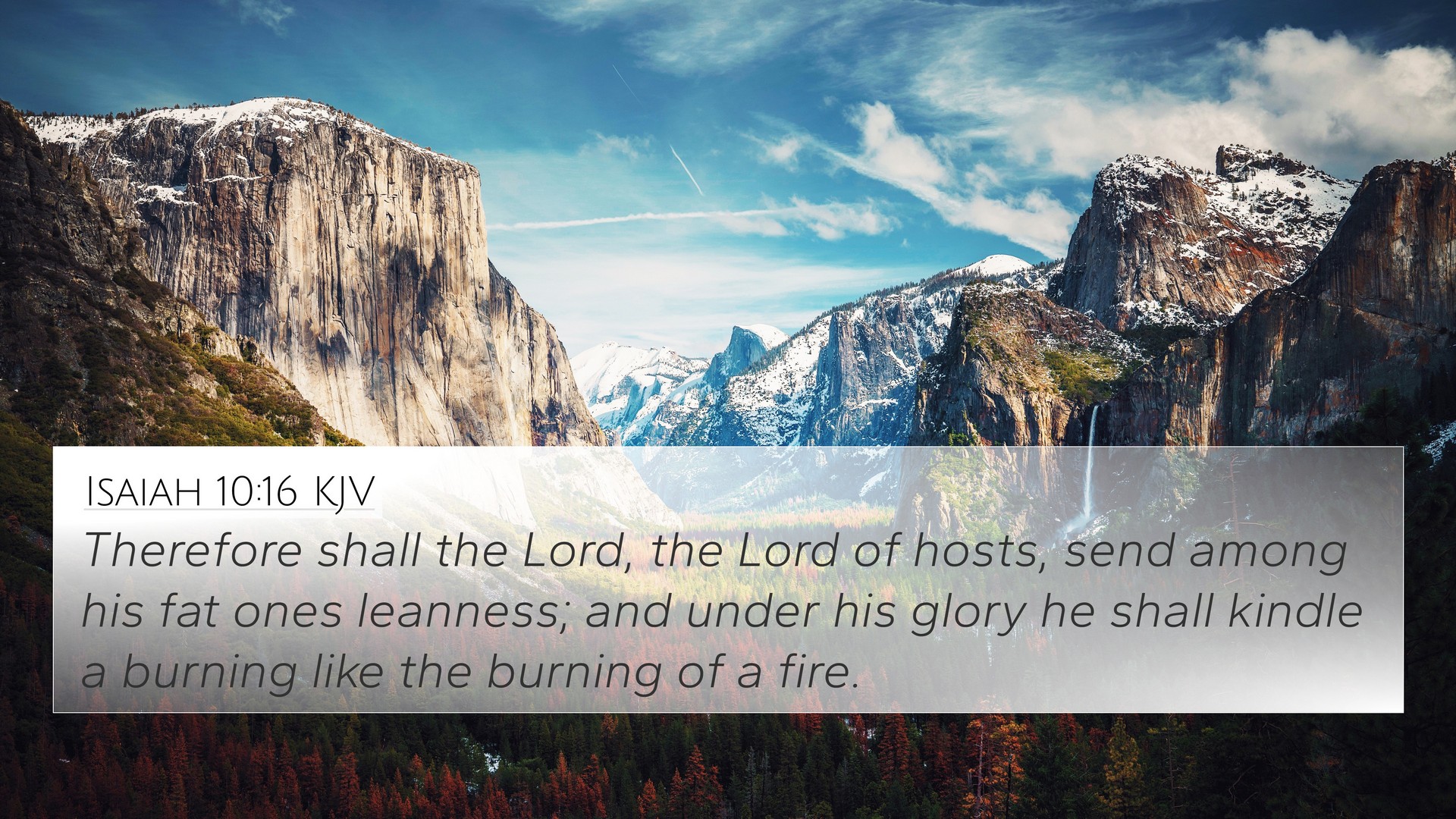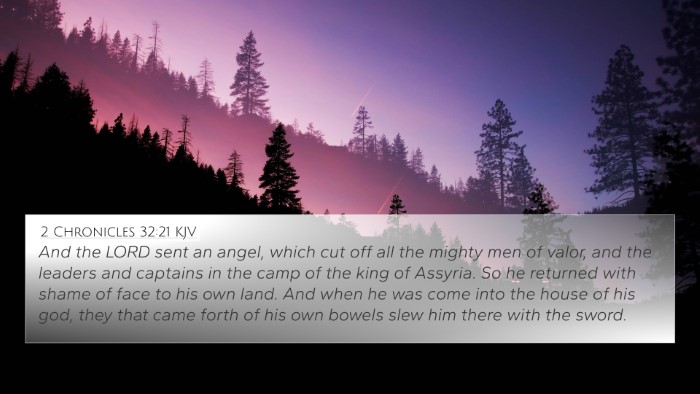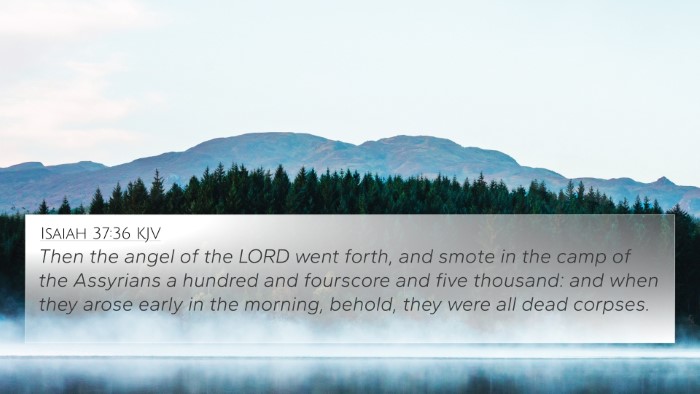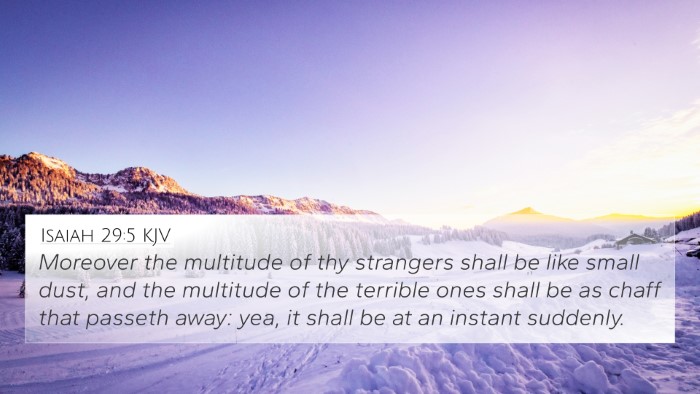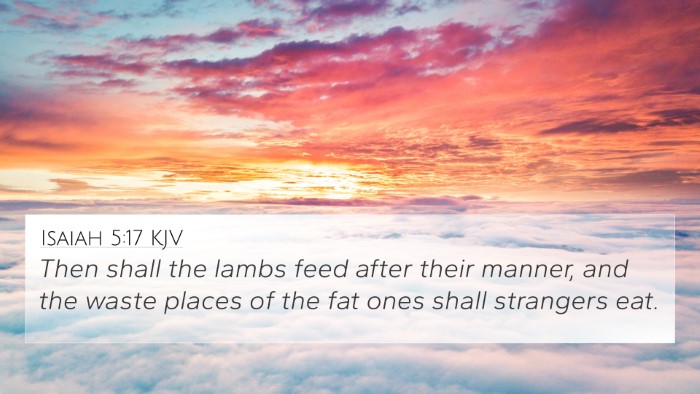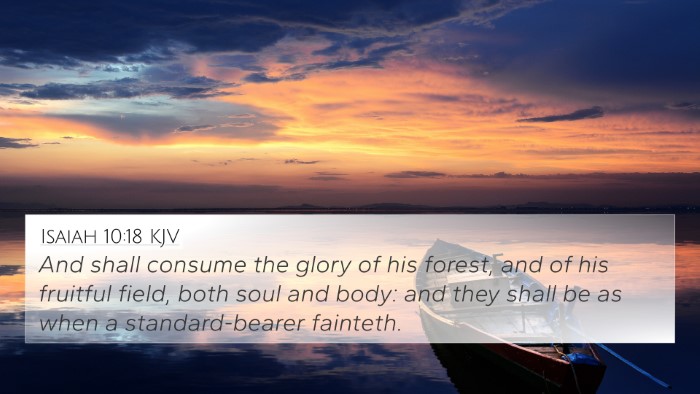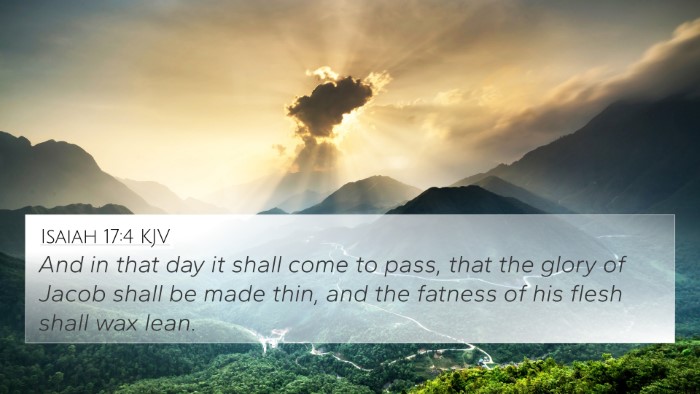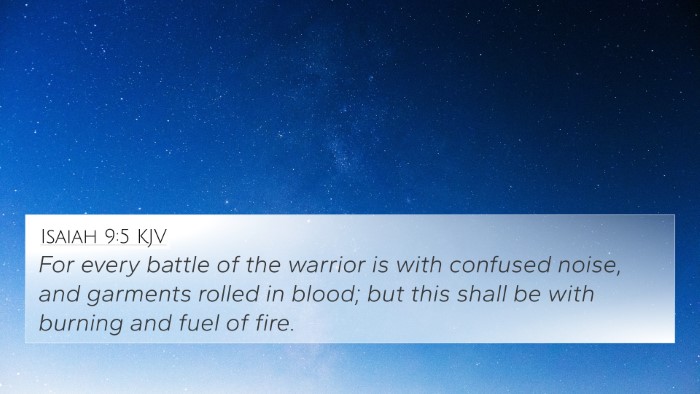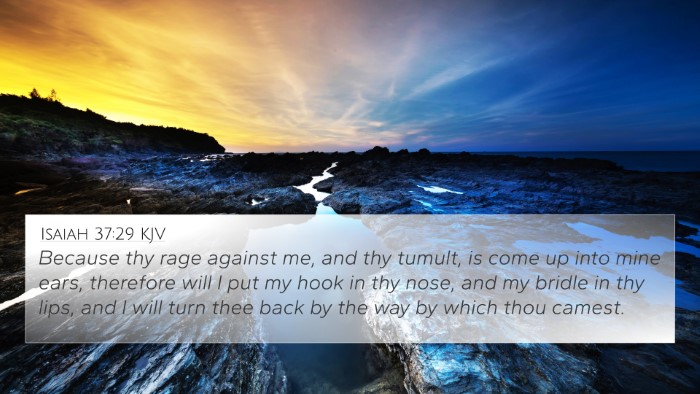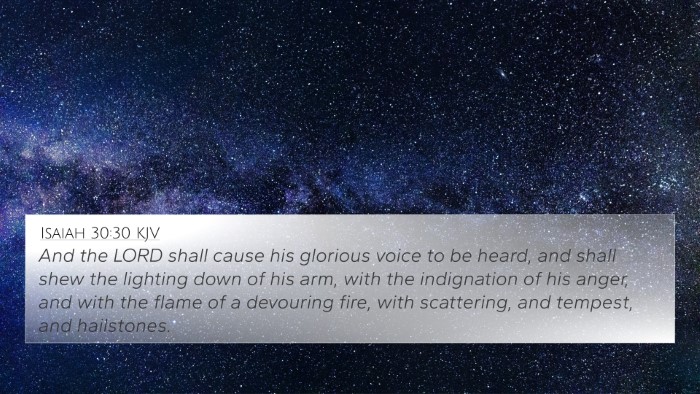Understanding Isaiah 10:16
Verse: "Therefore will the Lord, the Lord of hosts, send among his fat ones leanness; and under his glory he shall kindle a burning like the burning of a fire." (Isaiah 10:16)
Summary of Meaning
This verse serves as a warning against the pride and oppression of powerful leaders, often depicted as "fat" due to their abundance and authority. The implication here is that God will bring judgment upon them, leading to their downfall and emptiness ("leanness") instead of prosperity. The "burning" signifies destruction but also purifies and tests the hearts of those in leadership positions.
Key Themes and Insights
- The Sovereignty of God: The verse emphasizes God's supreme authority over nations and leaders.
- Judgment on Oppression: It highlights God’s response to oppression, indicating that those who abuse power will face consequences.
- Contrast of Abundance and Want: The imagery shifts from fatness to leanness, representing a reversal from pride to downfall.
- Fire as a Purifying Force: The 'burning' indicates both destruction and the potential for renewal or purification through trials.
Cross References
Isaiah 10:16 resonates with various other scriptures, which deepen our understanding of its message:
- Isaiah 5:27: "None shall be weary, nor stumble among them; none shall slumber nor sleep; neither shall the girdle of their loins be loosed, nor the latchet of their shoes be broken." (Resistance of judgment)
- Proverbs 11:21: "Though hand join in hand, the wicked shall not be unpunished: but the seed of the righteous shall be delivered." (Uncovering God’s justice)
- Jeremiah 51:57: "And I will make drunk her princes, and her wise men, her captains, and her rulers, and her mighty men..." (Divine judgment on the proud)
- 1 Peter 5:5: "Likewise, ye younger, submit yourselves unto the elder. Yea, all of you be subject one to another, and be clothed with humility..." (Humility vs. pride)
- Luke 1:51: "He hath shewed strength with his arm; he hath scattered the proud in the imagination of their hearts." (God's active judgment)
- James 4:6: "But he giveth more grace. Wherefore he saith, God resisteth the proud, but giveth grace unto the humble." (Consequences of pride)
- Isaiah 30:20-21: "...and the Lord will give you the bread of adversity, and the water of affliction: yet shall not thy teachers be removed into a corner anymore..." (God's role in adversity)
Connections between Bible Verses
This verse exemplifies the connections found throughout Scripture, particularly in the context of pride, judgment, and God’s sovereignty. The thematic unity of the Bible can be explored through:
- Exploration of pride and humility: Many verses across both Testaments emphasize the consequences of pride and the virtues of humility (e.g., Proverbs 16:18).
- Theological implications of divine judgment: This verse connects with numerous prophetic declarations of God's judgment against the people, including warnings from Jeremiah and Ezekiel.
- The hope of restoration after judgment: Many texts promise restoration after the judgment, drawing parallels with God's overarching plan for humanity (e.g., Isaiah 10:20).
Inter-Biblical Dialogue
Isaiah 10:16 invites readers to engage in inter-Biblical dialogue by reflecting on God’s interactions with powerful leaders across different periods. It encourages readers to:
- Analyze the historical context: Understanding the Assyrian Empire's impact on Israel and Judah.
- Identify prophetic themes: Contextualizing Isaiah’s prophecies alongside those of contemporary prophets like Micah.
- Compare New Testament teachings: Recognizing how themes of judgment recur in Jesus’ parables about leadership and stewardship (e.g., the Parable of the Talents).
Tools for Bible Cross-Referencing
For those looking to dive deeper into the connections between Bible verses, various tools can enhance your study:
- Bible concordance: An alphabetical listing of words and their occurrences in Scripture.
- Bible cross-reference guide: Resources that suggest parallel verses and their contexts.
- Cross-reference Bible study methods: Techniques for enriching your understanding through comparative analysis.
Conclusion
Isaiah 10:16 serves as a powerful reminder of God's sovereignty and the consequences of pride and oppression. Through cross-referencing and thematic analysis, believers can develop a deeper understanding of God's message in this verse and its implications across the entire biblical narrative.
